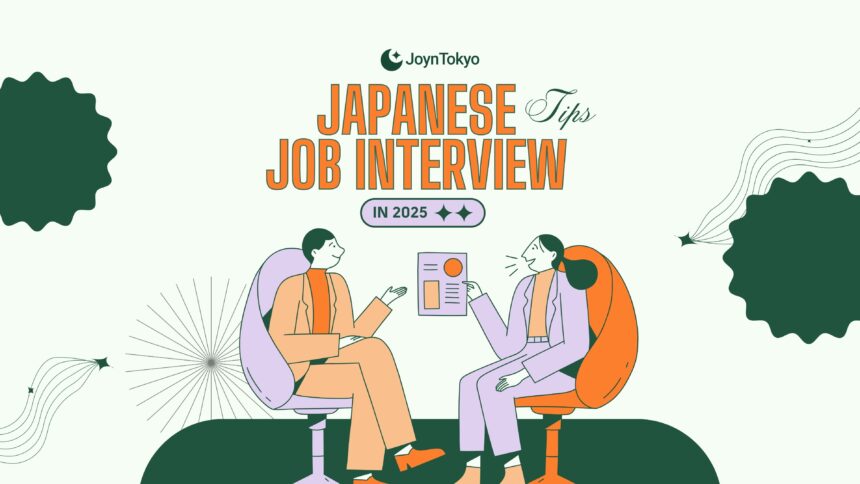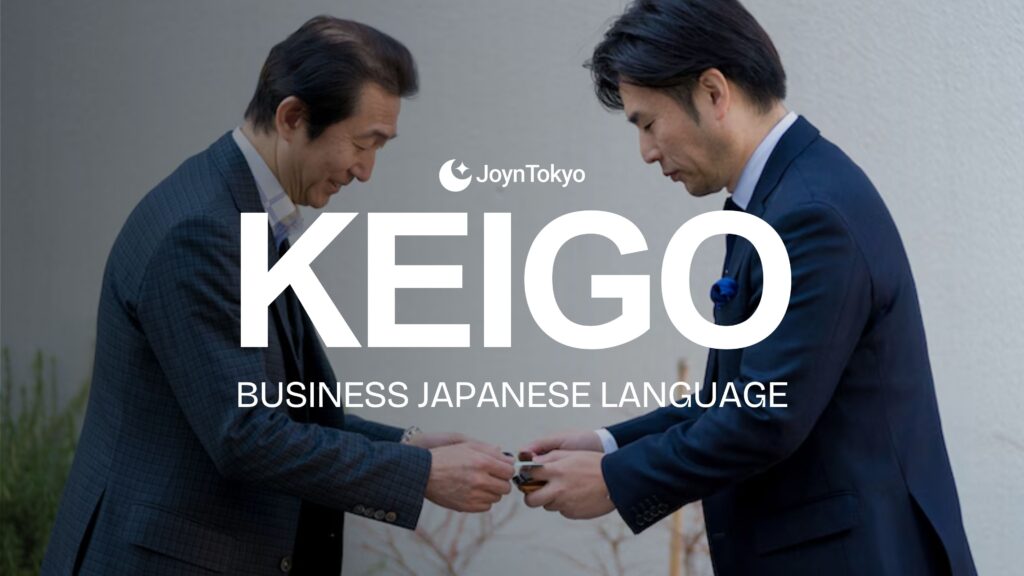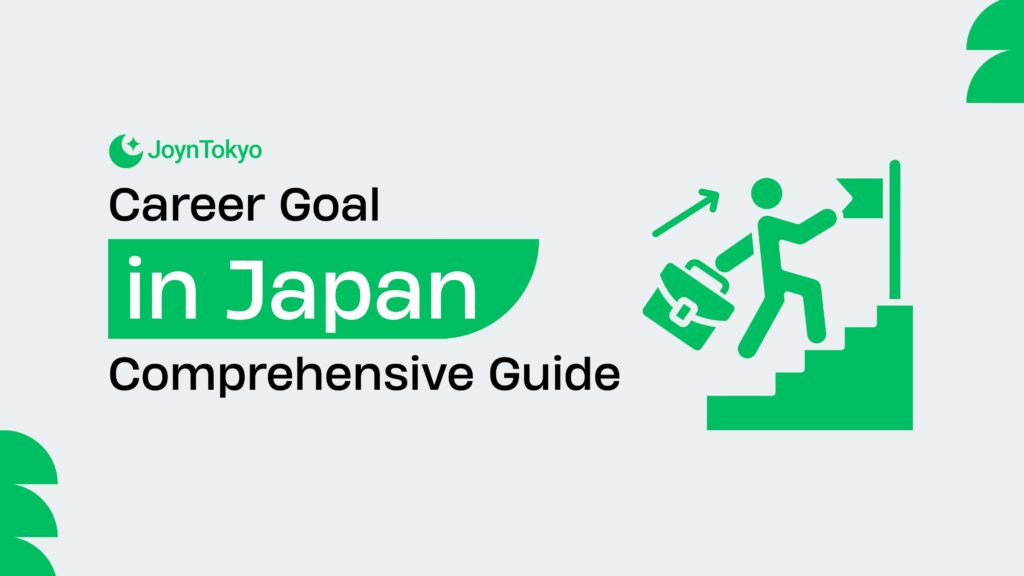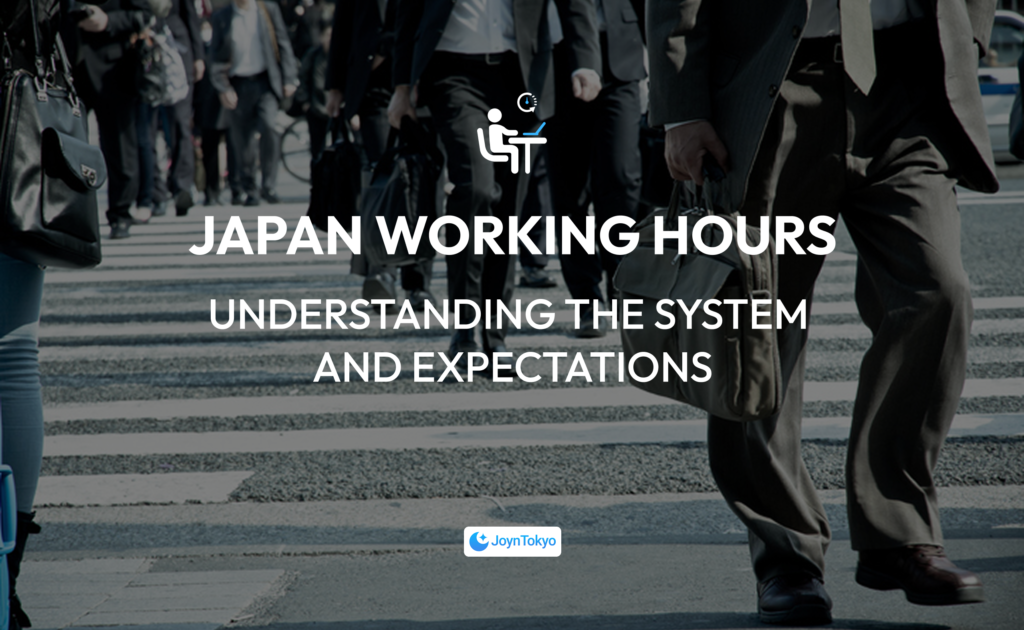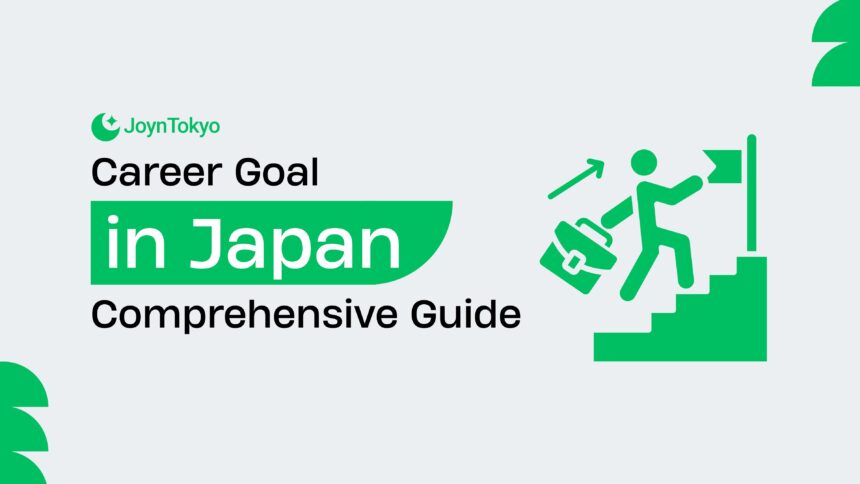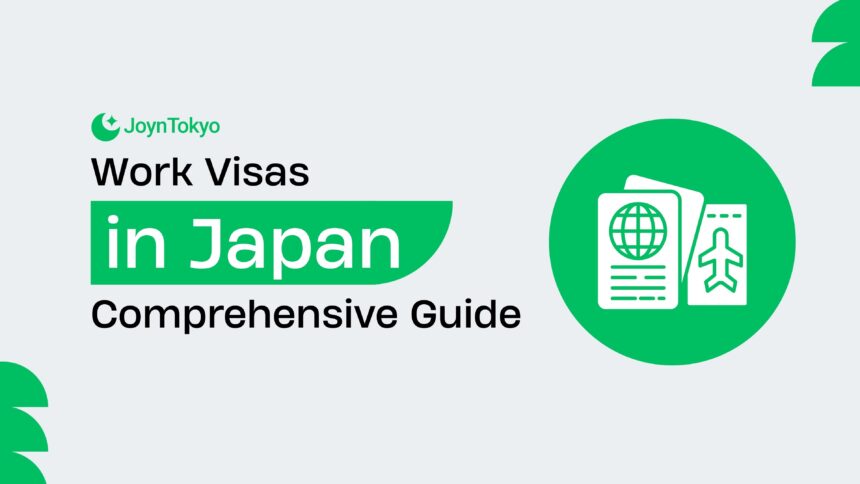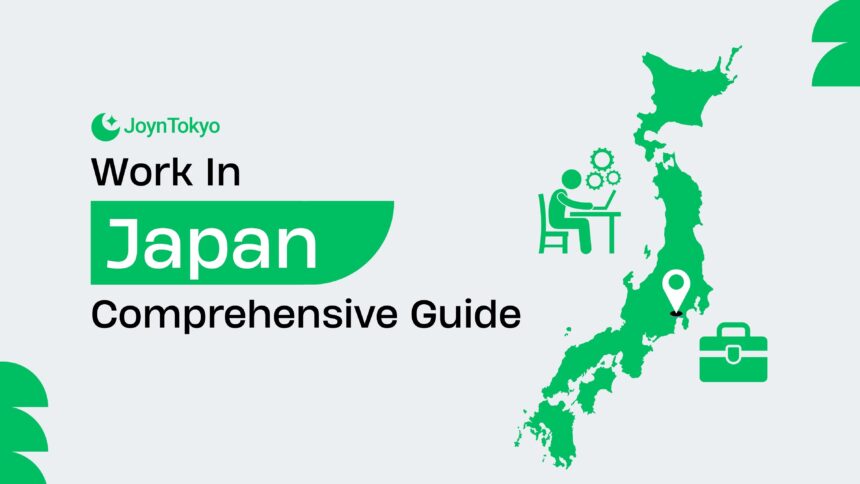If you are preparing for a job interview in Japan, these are the questions you are almost guaranteed to hear. Japanese interviews are structured, predictable, and heavily focused on how well you can explain yourself clearly and politely. This article lists the most common Japanese job interview questions by category, so you know exactly what to prepare, how they are asked, and what they sound like in real interviews.
Introduction questions
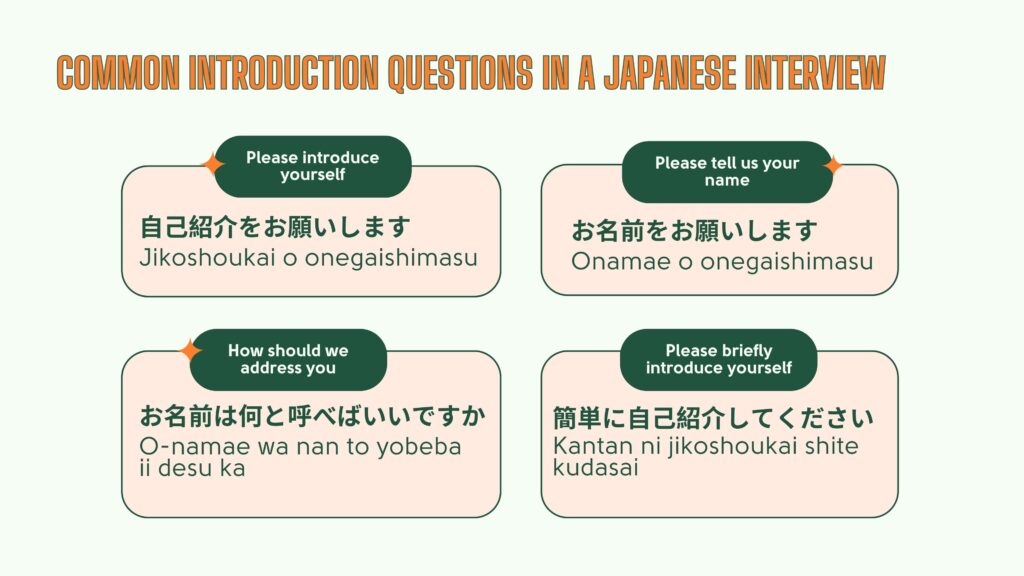
Interviewers almost always begin with simple self introduction questions. They are not trying to trick you here. They want to check your communication style, politeness, and whether you can introduce yourself calmly under pressure. Even fluent speakers sometimes stumble here because nerves kick in.
| English | Romaji | Japanese |
|---|---|---|
| Please introduce yourself | Jikoshoukai o onegaishimasu | 自己紹介をお願いします |
| Please tell us your name | Onamae o onegaishimasu | お名前をお願いします |
| Please briefly introduce yourself | Kantan ni jikoshoukai shite kudasai | 簡単に自己紹介してください |
| How should we address you | O-namae wa nan to yobeba ii desu ka | お名前は何と呼べばいいですか |
How to answer and structure your response
Keep your self introduction short, controlled, and factual. A safe structure is name, current role or background, core experience, and a polite closing line. Aim for thirty to forty seconds unless asked otherwise. Practice until it sounds steady rather than memorized.
Background and experience questions
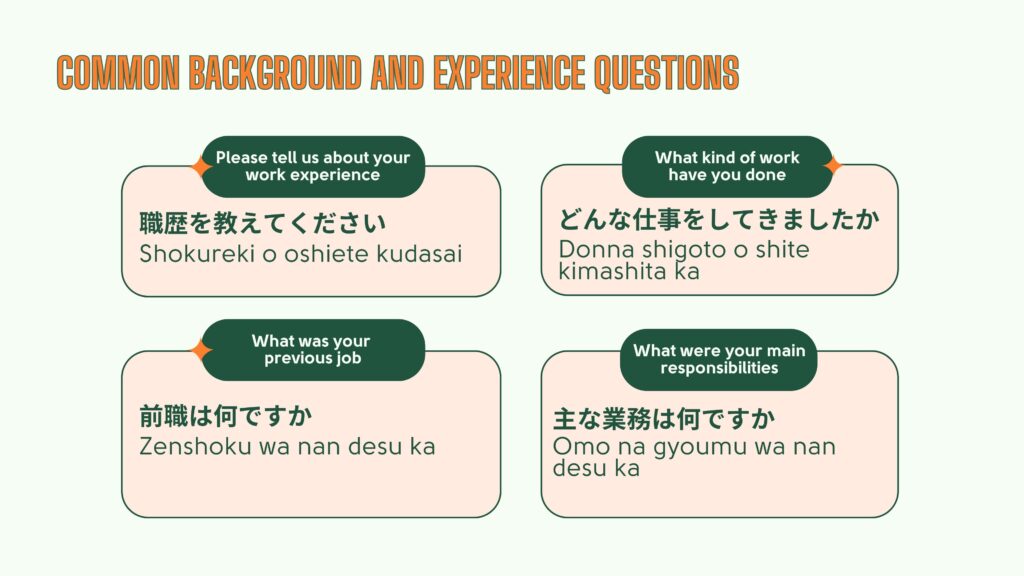
These questions confirm your resume and help the interviewer understand your career story. Japanese interviewers value consistency, so your answers should match your resume closely. Sudden career jumps or unclear timelines usually lead to follow up questions.
| English | Romaji | Japanese |
|---|---|---|
| Please tell us about your work experience | Shokureki o oshiete kudasai | 職歴を教えてください |
| What kind of work have you done | Donna shigoto o shite kimashita ka | どんな仕事をしてきましたか |
| What was your previous job | Zenshoku wa nan desu ka | 前職は何ですか |
| What were your main responsibilities | Omo na gyoumu wa nan desu ka | 主な業務は何ですか |
How to answer and structure your response
Follow a chronological structure. State your most recent role first, then briefly explain past roles if relevant. Focus on responsibilities rather than achievements at this stage. Numbers and concrete tasks are more effective than abstract descriptions.
Do not criticize former employers or explain job changes emotionally. Neutral and factual language is preferred.
Skills and strengths questions
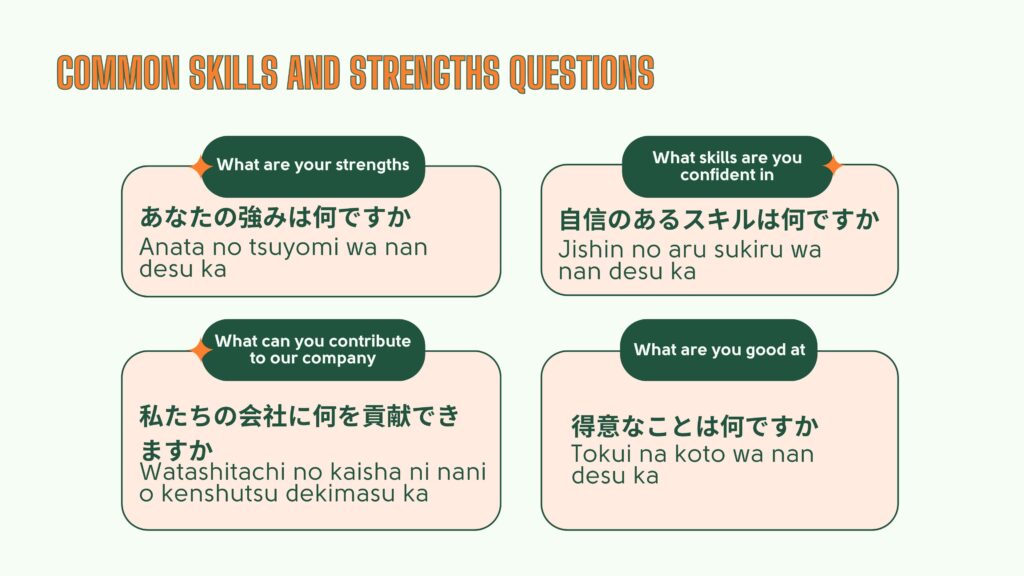
This is where you are expected to explain your value clearly, without sounding arrogant. In Japan, confidence is shown through clarity and examples, not exaggeration. Short explanations followed by a concrete example work best.
| English | Romaji | Japanese |
|---|---|---|
| What are your strengths | Anata no tsuyomi wa nan desu ka | あなたの強みは何ですか |
| What skills are you confident in | Jishin no aru sukiru wa nan desu ka | 自信のあるスキルは何ですか |
| What can you contribute to our company | Watashitachi no kaisha ni nani o kenshutsu dekimasu ka | 私たちの会社に何を貢献できますか |
| What are you good at | Tokui na koto wa nan desu ka | 得意なことは何ですか |
How to answer and structure your response
Choose one or two strengths only, name the skill, explain how you use it at work, and give a short example. Keep the explanation practical and tied to the role you are applying for.
Avoid listing too many strengths or using vague terms like hardworking without context.
Motivation and company interest questions
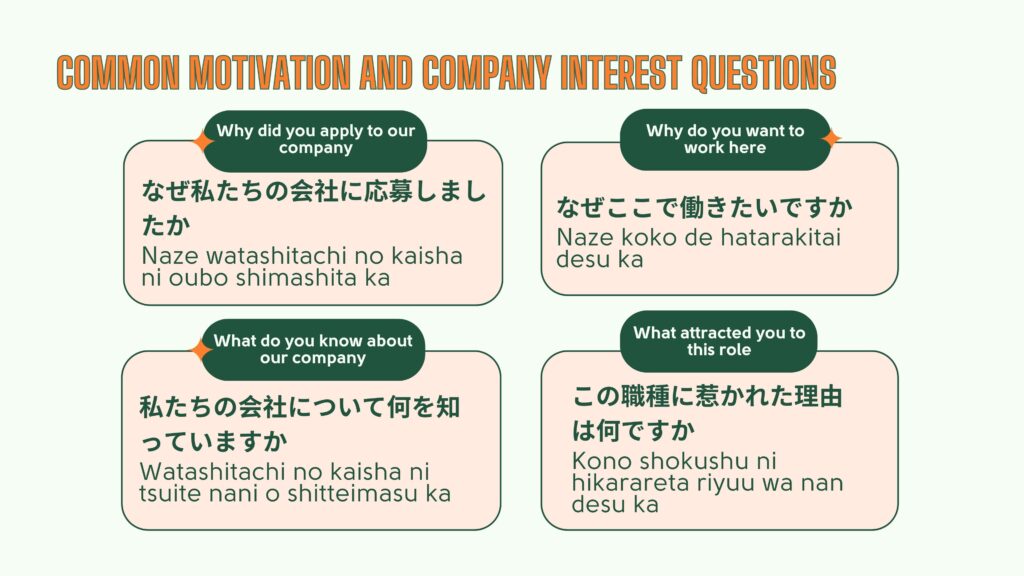
These are some of the most important questions in Japanese interviews. Interviewers want to know that you researched the company and that your motivation is specific. Generic answers are easy to spot and usually hurt your evaluation.
| English | Romaji | Japanese |
|---|---|---|
| Why did you apply to our company | Naze watashitachi no kaisha ni oubo shimashita ka | なぜ私たちの会社に応募しましたか |
| Why do you want to work here | Naze koko de hatarakitai desu ka | なぜここで働きたいですか |
| What do you know about our company | Watashitachi no kaisha ni tsuite nani o shitteimasu ka | 私たちの会社について何を知っていますか |
| What attracted you to this role | Kono shokushu ni hikarareta riyuu wa nan desu ka | この職種に惹かれた理由は何ですか |
How to answer and structure your response
Connect your motivation to the company specifically by mentioning a product, service, business philosophy, or recent initiative. Then explain how it aligns with your experience or goals. Specific details signal sincerity.
Work style and teamwork questions
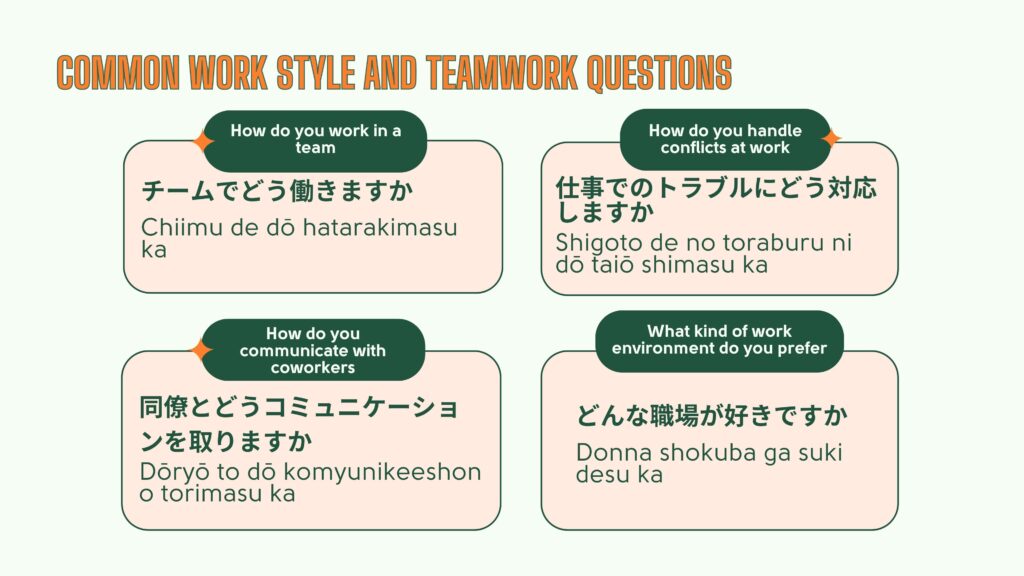
Japanese companies care deeply about teamwork, communication, and how you handle conflict. These questions are designed to see how well you fit into group oriented workplaces rather than how individually impressive you are.
| English | Romaji | Japanese |
|---|---|---|
| How do you work in a team | Chiimu de dō hatarakimasu ka | チームでどう働きますか |
| How do you handle conflicts at work | Shigoto de no toraburu ni dō taiō shimasu ka | 仕事でのトラブルにどう対応しますか |
| How do you communicate with coworkers | Dōryō to dō komyunikeeshon o torimasu ka | 同僚とどうコミュニケーションを取りますか |
| What kind of work environment do you prefer | Donna shokuba ga suki desu ka | どんな職場が好きですか |
How to answer and structure your response
Emphasize listening, reporting, and collaboration. Describe how you share information, ask for clarification, and support team goals. Concrete examples help, especially those involving coordination rather than leadership dominance.
Closing and availability questions
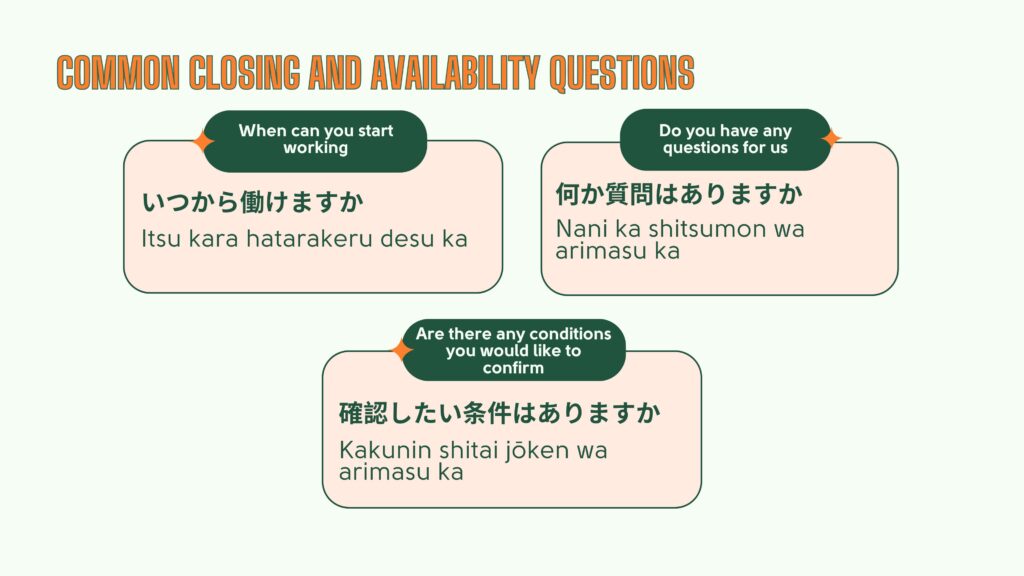
These questions signal that the interview is ending. They often cover practical matters like start dates and give you a chance to ask questions. Having at least one thoughtful question ready is strongly recommended.
| English | Romaji | Japanese |
|---|---|---|
| When can you start working | Itsu kara hatarakeru desu ka | いつから働けますか |
| Do you have any questions for us | Nani ka shitsumon wa arimasu ka | 何か質問はありますか |
| Are there any conditions you would like to confirm | Kakunin shitai jōken wa arimasu ka | 確認したい条件はありますか |
Preparing clear answers to these questions will cover the majority of Japanese job interviews. Once you are comfortable responding to them calmly and politely, interviews in Japan become far more predictable and manageable.
How to answer and structure your response
Answer availability questions clearly and honestly. When asked if you have questions, prepare at least one thoughtful, work focused question about training, team structure, or role expectations.
Video Interviews With Japanese Companies
Many companies in Japan now use online meetings for first or second interviews. The expectations are mostly the same, but there are a few small adjustments.
A neutral background and a stable internet connection are important. Keeping your camera at eye level helps you appear more engaged. And because people cannot always read micro expressions through a screen, speaking just a touch more clearly than usual helps keep things smooth.
The level of politeness in Japanese interviews can feel unusually high. You are not expected to speak perfect keigo, but trying to avoid casual expressions helps. Even simple phrases like “hai” and using “masu” form show that you care and are trying.
Read More
While it is impossible to cover every question an interviewer might ask, having these fundamentals prepared gives you a far stronger foundation, helping you respond with confidence, stay composed, and greatly improve your chances in a Japanese job interview.

